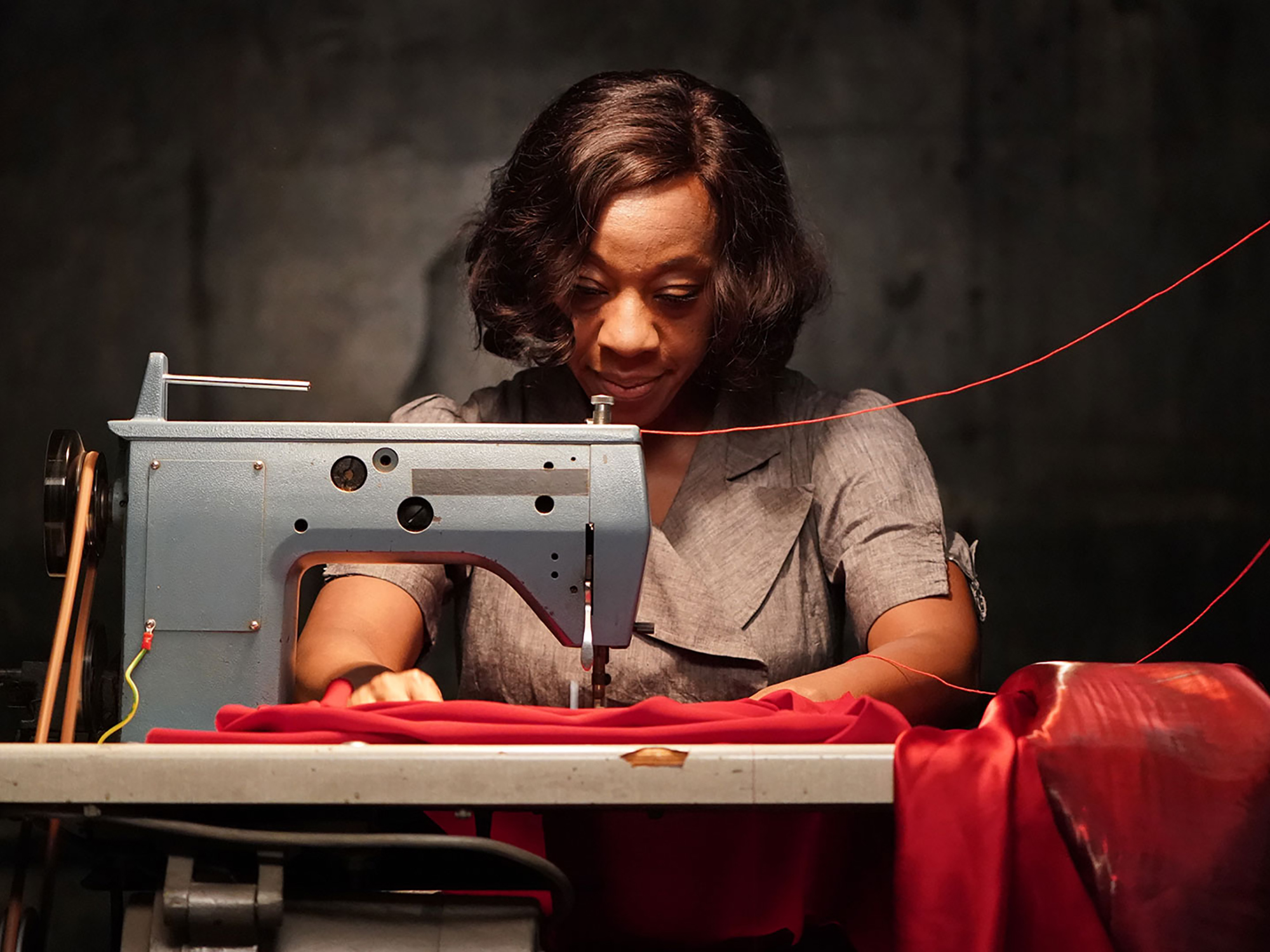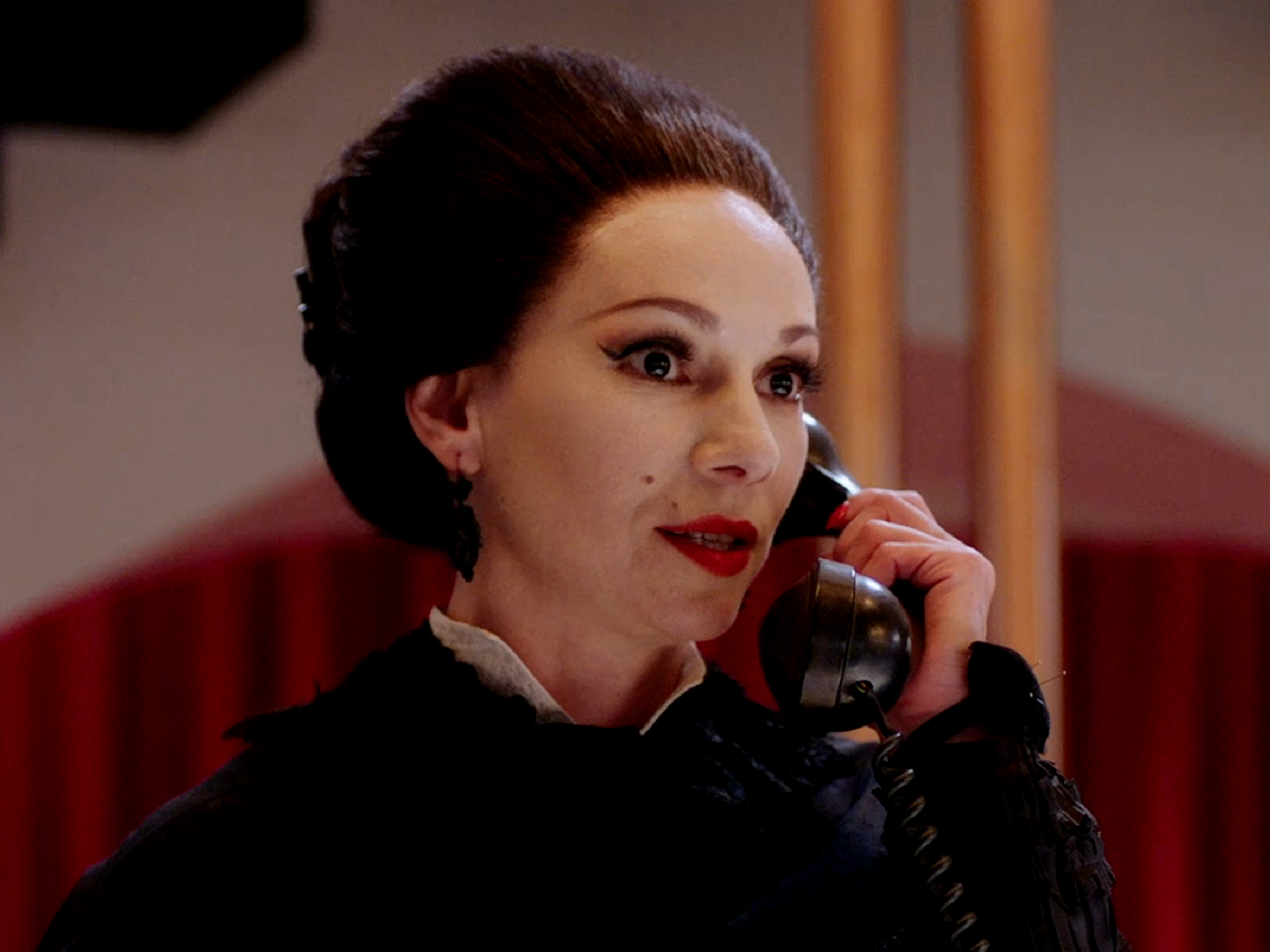
Having set his previous features in Transylvania (Katalin Varga, 2009), Italy (Berberian Sound Studio, 2012) and a Middle-European Amazonia (The Duke of Burgundy, 2014), Peter Strickland returns to his native Britain for In Fabric.
The location is the semi-fictitious ‘Thames Valley On Thames’, stuck in what appears to be a permanent 1970s – or perhaps that is just Peter Strickland’s sly comment on the state of England, both Middle and Little. On the periphery, there are country walks and woodland backroads, but the town centre features Vlassos’ Greek restaurant, Waingel’s Bank, Staverton’s washing machine repair and Zimzam’s night club – and dominating everyone’s attention, especially during this time of the winter sales, is Dentley & Soper’s department store.
At the film’s beginning and again near its end, a TV spot for Dentley & Soper’s is shown – not so much an ad as a lo-res mesmeric invocation, summoning customers to spend. Old Mr Lundy (Richard Bremmer) and his all-female staff, when they are not engaged in nocturnal orgiastic rites (with anatomically responsive mannequins) in the basement, run the store as a cult centre, where ‘the paradigm of retail’ is performed by zealous customers as a ritual act. The bank, the club, the restaurant, the repair shop – these too are familiar yet defamiliarised institutions, managed according to strange, often perverse codes and conventions that abstract and fetishise social norms.
The elevator (or ‘dumb waiter’) pitch for In Fabric goes: comedy horror in which a cursed red dress brings its owners to ruin. Really, though, that only scratches the narrative surface of a wilfully weird film that reduces English mores to what a poster at Waingel’s Bank terms ‘transactioneering’: that awkward interface whereby individuals negotiate sales, relationships, power and gender.

Like the department store ad, Strickland’s film sends viewers into a hypnotic state with its rhythms and repetitions, whether it is serial scenes of middle-aged divorcee Sheila (Marianne Jean-Baptiste) both on blind dates and in bizarre meetings with her bosses (Julian Barratt, Steve Oram) at the bank, or of young repairman Reg Speaks (Leo Bill) putting himself, his customers and even his fiancée Babs (Hayley Squires) into eroticised trances with his monotone descriptions of washing machine parts, or just the patterns and leitmotifs of Cavern Of Anti-Matter’s circling score. Even the bipartite structure hinges upon repetition, as Reg and Babs’ story picks up where Sheila’s ends, retracing its themes (with deviations).
You might fancy that Fatma Mohamed will be a grounding presence, given that she is the one actress to have starred in all of Strickland’s features – but in fact her soothing department store assistant Miss Luckmoore serves as the witchy heart of the film’s chaotic confusion, using highly mannered turns of phrase and sensual gestures to cast a surreal spell over everyone whom she seduces into making a purchase.
In this oneiric oddity, consumerism is everything, ultimately devouring even the consumer – while the real horror is the exploitative means of production, carefully kept underground beyond the sight of bourgeois shoppers above.
The post In Fabric appeared first on Little White Lies.
![Forest Essentials [CPV] WW](https://s3-us-west-2.amazonaws.com/pcw-uploads/logos/forest-essentials-promo-codes-coupons.png)
0 comments